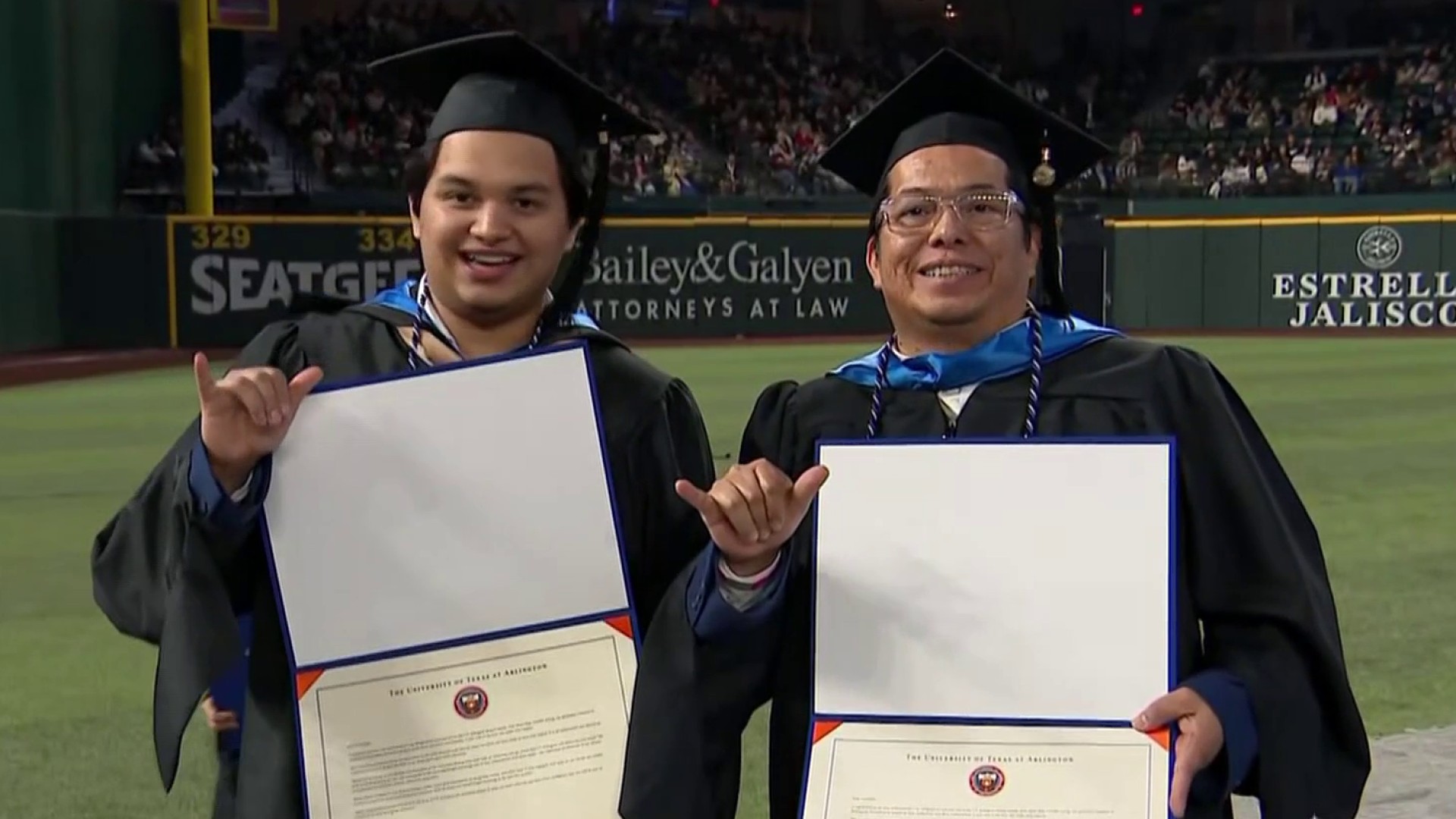SB4, Texas’ controversial immigration-enforcement bill, is back in a federal appeals court on Wednesday.
Attorneys for the state of Texas along with Biden administration lawyers are in Austin over whether or not to unblock the law.
A three-judge panel started listening to oral arguments at 9 a.m. at the Fifth Circuit United States Court of Appeals in New Orleans.
It's the same panel that put SB4 on hold for the last week while this case plays out.
Get top local stories in DFW delivered to you every morning. >Sign up for NBC DFW's News Headlines newsletter.
The law was passed late last year by the state's Republican-controlled legislature. Under SB4, state and local police have the right to question, arrest, and charge undocumented immigrants suspected of crossing the border illegally. Furthermore, the law would require that state judges deport people back to Mexico upon conviction, regardless of their nationality.
The Biden Administration sued the State of Texas shortly after Republican Gov. Greg Abbott signed SB4 into law back in December. The lawsuit argues that the law is an overreach, and conflicts with the federal government’s authority to enforce immigration laws.
Several advocacy groups have also launched multiple efforts against SB4, alleging it could lead to racial profiling of people of color and that it could criminalize immigration, which is a civil matter through the federal government.
Local
The latest news from around North Texas.
“The federal government has an understanding that all immigration processes are civil matter and administrative manners, meaning that there's no criminal penalty involved. This is something that SB4 is doing and it's something the United States government says it is overreaching with the federal powers,” said Omar Ortiz, an immigration attorney for Jaime Barron Immigration Law Firm in DFW.
Supporters of the bill have argued that SB4 is necessary amid the record number of unauthorized crossings on the border and that Texas has a right to step in.
“Basically Texas is arguing that it has the rights to protect its borders based on prevalent dangers or prevalent changes along the border and that are affecting the state," said Ortiz. “The United States government is arguing that the constitution and many cases from the United States Supreme Court already align the power of handling immigration to the United States federal government, meaning the Texas government cannot enact immigration policies.”
That debate over who should be in charge of immigration at the Texas border led to a flurry of legal back-and-forth that resulted in a pause on SB4, then a ruling that put the law in effect, and then another ruling that blocked it again.
Then on March 27, the Fifth Circuit court ruled 2-1 to deny a motion from the State of Texas for a stay on the decision of whether it can enforce SB4, until Biden administration challenges can be heard.
In that decision last week, the court noted that:
“Allowing Texas to detain noncitizens without any input from the Federal Government about whether an arrest is warranted in a particular case...would allow the State to achieve its own immigration policy."
The ruling goes on to note that:
“The Texas removal provisions will significantly conflict with the United States' authority to select the country to which noncitizens will be removed. A large number of noncitizens who crossed into Texas from Mexico are not citizens or residents of Mexico. Nevertheless, under Texas law they would be removed to Mexico. The United States would have no voice in the matter."
The government of Mexico has spoken out against SB4 and has said it will not accept foreign nationals deported there from the U.S.
Immigration attorneys who are closely watching the case said Wednesday’s arguments was the first time that judges were able to hear more details about the law that weren’t clarified before in court. One concern includes how probable cause plays out in SB4 and how police can decide who to question.
"The last arguments that were being seen and heard from the Fifth Circuit and the United States Supreme Court were actually all due to the state of placing the law in effect. They didn't actually go into details of if SB4 was constitutional or not,” said Ortiz. “They were still reserving those arguments. So now [with the stay], we are now going to see full legal arguments on the validity of SB4."
It is not known when the panel will issue another ruling following the oral arguments. Legal experts said we can expect a final decision a little sooner than normal. However, Texas does have the option to ask the full court to let the law go into effect while it waits on that decision.
An ultimate decision will probably come from the U.S. Supreme Court at a later date, which could drag out the fight even longer.
Arrests for illegal crossings fell by half in January from a record-high of 250,000 in December, with sharp declines in Texas. Arrests in the Border Patrol's Del Rio sector, the focus of Abbott's enforcement, fell 76% from December. Rio Grande Valley, the busiest corridor for illegal crossings for much of the last decade, recorded its fewest arrests since June 2020.
Tucson, Arizona, has been the busiest corridor in recent months, followed by San Diego in January, but reasons for sudden shifts are often complicated and are dictated by smuggling organizations.
When President Joe Biden visited the Rio Grande Valley for his second trip to the border as president in February, administration officials credited Mexico for heightened enforcement on that part of the border for the drop in arrests. They said conditions were more challenging for Mexican law enforcement in Sonora, the state that lies south of Arizona.



